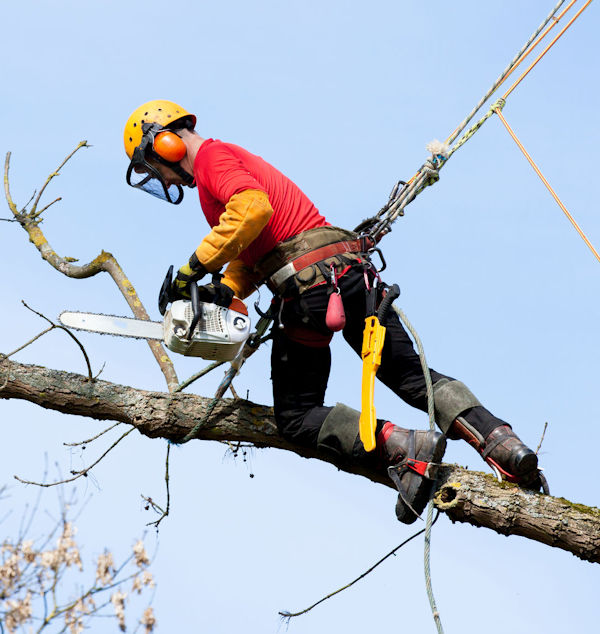Belts, Clothing, and Defective PPE
Body (Safety) Belts
OSHA 1926.502(d) defines a body (safety) belt as a strap with means both for securing it about the waist and for attaching it to a lanyard, lifeline, or deceleration device.
OSHA prohibits the use of body (safety) belts as part of a fall arrest system. They do not provide adequate protection to prevent a worker from falling and they do not distribute forces in the same way a full-body harness does.
When used as a restraint device they must prevent a fall of any distance. When used as a positioning device, workers must be protected from falling more than 2 feet. This usually means preventing a short, feet-first fall straight down. The maximum arresting force on an employee is limited to 900 pounds (4 kN) when used with a body belt. It's important to note that these devices are not for hoisting materials.
Back Belts
Employees may be allowed or even encouraged by the employer to use back belts to provide support for the lower back while lifting heavy objects at work. However, OSHA does not recognize back belts as effective in preventing back injuries. While back belts may be acceptable to workers because they seem to provide additional support, they may restrict the body's range of motion and eventually cause injury due to atrophy of back muscles. Research by NIOSH indicates that the primary value in back belts is that they "remind" the employee to use proper lifting techniques.
Work Clothing
Clothing must be worn which is appropriate to the work performed and conditions encountered. Jewelry, loose sleeves, ties, lapels, cuffs, or other loose clothing must not be worn near moving machinery.
Make sure that you immediately remove clothing that becomes saturated or covered with flammable liquids, corrosive or toxic substances, irritants, or oxidizing agents. Don't wear it again until it's properly cleaned.
Defective Equipment
Personal protective equipment (PPE) that is defective or damaged should never be used. It's important to inspect PPE regularly, and before each use, to make sure it's capable of adequately protecting an employee from exposure to hazards. Remember, PPE that is defective is not PPE.
Knowledge Check Choose the best answer for the question.
1-3. Body (Safety) belts may be used _____.
You forgot to answer the question!

